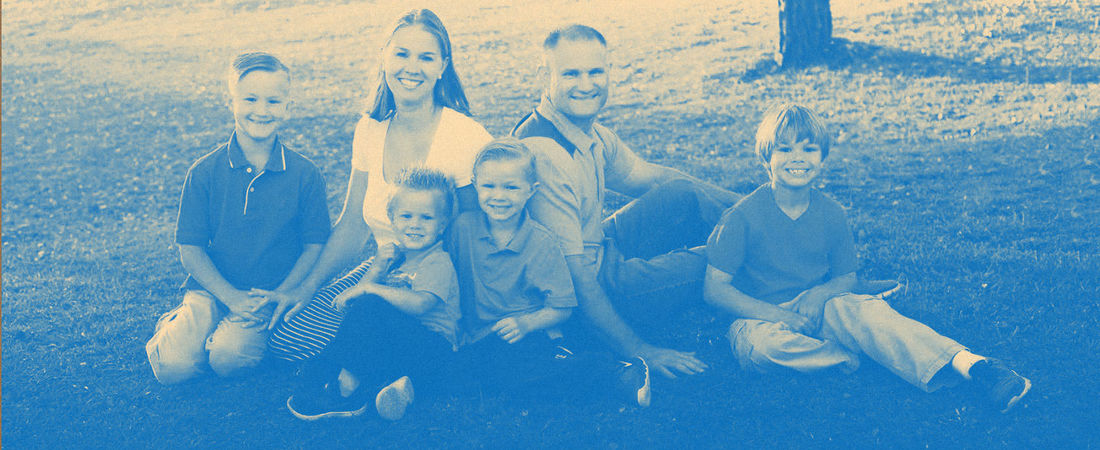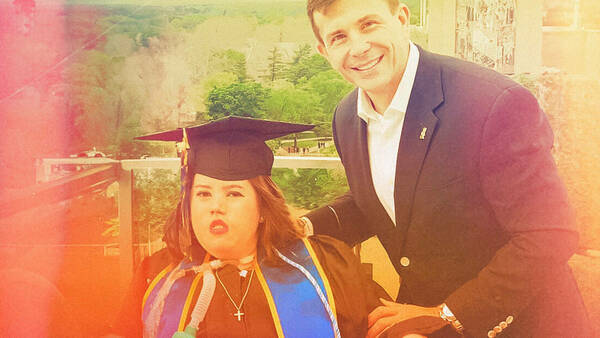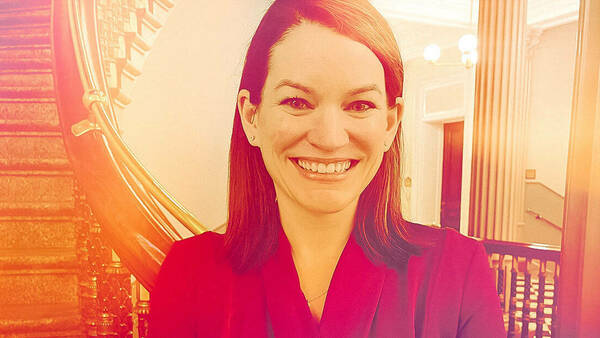Becky (Klein) Hinkel ’01 takes her job as a mother very seriously. So seriously that she traveled down to Honduras to add 500 children to her family of six.
Hinkel had always enjoyed working with kids, going back to her time as a student at Notre Dame. One summer she completed a Summer Service Learning Project at the Boys and Girls Club of Newark, New Jersey. Another she worked at Notre Dame with the National Youth Sports Program. After college, Hinkel attended law school at the University of Cincinnati, and now works part time at a law firm. As fulfilling as her life with her husband and her four boys was, in the winter of 2017, she found inspiration to take a leap.
“My husband and I were talking about things to do, and we had read a few books, Radical by David Platt and You and Me Forever by Francis and Lisa Chan," Hinkel says. “In there it was talking about ‘Just go and do. You’re never going to have the perfect time to do something. If you’re feeling called to do something, just do it. God will provide.’ So we looked into a couple of different mission trips. We decided that we wanted to take our two oldest boys on the mission trip instead of doing the typical summer vacation.”
The trip they found was to Orphanage Emmanuel in Guaimaca, Honduras. Hinkel and her husband, Jimmy, took their ten-year-old and eight-year-old with them for a week, but after falling in love with the orphanage and the children there, they decided to take an even bigger leap. Hinkel’s husband quit his job, and the couple returned to the orphanage, this time bringing the whole family and staying for three months.
Hinkel worked in the toddler house with the younger children, and her husband worked on the farm, growing vegetables and tending to the livestock. Their kids went to school with the other children a few days a week but otherwise could decide which parent to accompany. They quickly made friends with the other kids, despite the language barrier they faced.
“They each kind of had a special best friend. And they would help them—even the three-year-old, you could tell he felt like he was supposed to be helping his friend. So at lunch or dinner sometimes they would sit down and they would help feed the little kids. So it was neat to see.”
The Hinkel family’s charity was not one-sided, though. Most everyone, at Orphanage Emanuel, it seems, wanted to help each other.
“The kids there are very giving. They don’t have much, but what they do have they’re willing to share.” Hinkel says. “My one son, his birthday was just last week, so just a few days after we came back. And one of the kids we got to be good friends with, before we left gave my son a little bible. Obviously somebody had given it to him, and he felt strongly enough that he wanted to give it to my son just because that’s all he had.”
Hinkel believes that this kind of reciprocity, being able to give and receive love, is necessary to happiness, which is what makes their work at the orphanage so important.
“They have everything—they have three meals a day, they have school, they have clothes,” she says. “They have everything they need, but they don’t have the love that we all need.”
To both her spiritual children at the orphanage and her four boys, Hinkel strives to be “Jesus’s unconditional love,” a commitment she feels most mothers share.
“I really look up to my mother, and so I have tried to be a mom that my kids are going to look up to,” she says. “You can live without a lot of stuff, but you need love, and I feel like it has to start in the home. If a mother’s not showing that, it’s hard for the kids to be able to show love to others.”
Since returning home in April, Hinkel has been struggling with leaving behind all the children she loved so dearly, but she reminds herself that she was “there for a purpose.”
“We were there for those three months, and we did what we could in those three months to show that love,” she says. “And Jesus calls us to care for orphans and widows. We did that for those three months.”
Although she does not know exactly when, Hinkel plans to take another trip to Honduras and her second family there.
“We really did feel like a lot of them were our kids,” she says. “A lot were calling us mommy and daddy by the end, and they were calling our sons their brothers. They really felt that connection there. And we treated them no differently. We loved on them just as we were loving on our own kids.”
To learn more about Orphanage Emmanuel, please visit its website.



